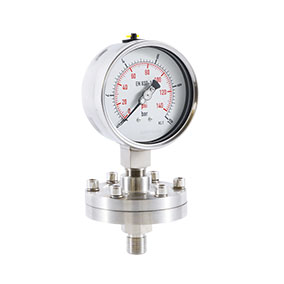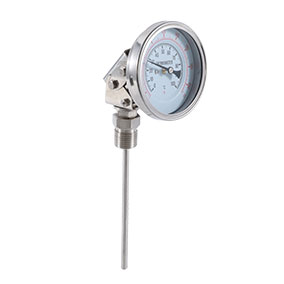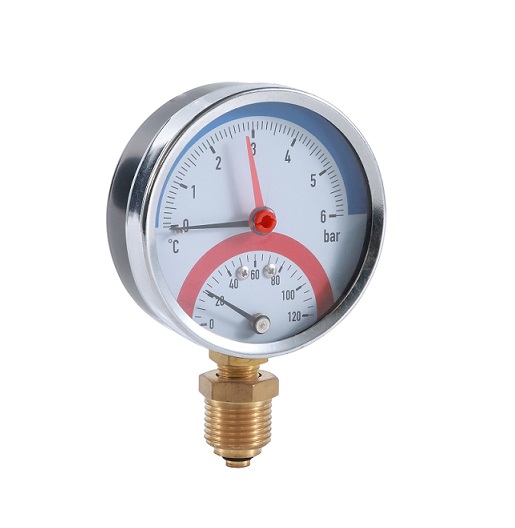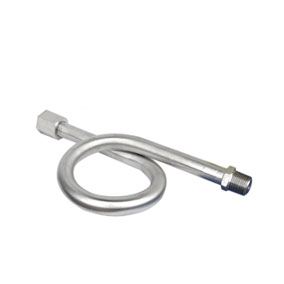A brief overview of pressure gauge types
Pressure gauges are important tools for measuring and monitoring gas and liquid pressure in a variety of industries and applications. They provide critical information that helps ensure the safety, efficiency, and reliability of processes and systems. However, since there are so many types of pressure gauges, choosing the right model for your specific needs can be a daunting task. This article aims to simplify the process by explaining the different pressure gauge types, their functions, applications, and factors to consider when choosing the right pressure gauge.
What is a pressure gauge?
A pressure gauge is a device that helps monitor pressure within a system. Water systems and storage tanks function because of the pressure that the water and air inside is placed under. A pressure gauge measures the force of the pressure in the water or air so that you can determine whether you have any errors in your tanks or systems. If pressure inside a system significantly differs from the norm, then you must take action to correct a fault in the system.
Types of Pressure Gauges: Absolute Pressure Gauges
Absolute Pressure Measurement – Absolute pressure is measured with reference to the pressure that exists in a full vacuum. The pressure at complete vacuum is zero. Therefore, it is called ‘absolute’ pressure.
Description of Measuring Instruments – A typical mechanical absolute pressure gauge consists of a measuring cell, separated by a diaphragm. One portion of the instrument is the reference chamber and is a vacuum. A barometer, which is a hydrostatic gauge can also be used to measure absolute pressure.
Applications – Absolute pressure gauges can be used to measure the vapor pressure of liquids, vacuum reactors, to check leakage in tanks and circuits and to measure the fall in pressure of distillation vacuum columns, to monitor adiabatic saturation pressure by meteorologists and to perform distillation operations in the oil refining industry. Absolute pressure gauges are also used in vacuum pumps and in the food packaging industry. Barometers are used to measure atmospheric pressure.
Types of Pressure Gauges: Differential Pressure Gauges
Differential Pressure Measurement – Differential Pressure is only the measure of the difference between two pressure readings. It does not offer any information about the levels of pressure at the two individual points that it compares.
Description of Measuring Instruments – Differential pressure gauges are usually mechanical in nature. The major types of gauges for measuring differential pressure are Piston-style, Diaphragm type and Bellows differential pressure gauges. Each have specialized application in different industrial processes.
Applications – Differential pressure gauges find applications in various industries for monitoring filtration, liquid level, and liquid flow. These are useful in refineries as well as petrochemical and chemical plants, power plants and clean room.
Types of Pressure Gauges According to Usage
Commercial and Industrial Pressure Gauges – Commercial pressure gauges are common pressure gauges frequently used in the heating, ventilation, and air conditioning (HVAC) and refrigeration fields. Industrial pressure gauge is suitable for production processes that would not block the pressure system. Industrial gauges are used in manufacturing industries, OEM applications, hydraulic, water treatment and RO industries.
Process Pressure Gauges – In industries where the production process functions under extreme conditions, subjected to vibrations, pressure spikes and a corrosive environment (like in certain areas of petrochemical and other chemical industries), a process pressure gauge can be safely used.
Low Pressure Gauges – These are suitable for measurement of liquid and gaseous pressure, provided they don’t obstruct its functioning. Plants construction processes, pneumatic systems and cleanrooms often need low pressure gauges.
Seal Gauges – These gauges are designed to seal potential leak paths and are used in variety of industrial applications to meet material compatibility requirements, viscous applications, corrosive chemicals, vibrations, sanitary and pharmaceutical requirements.
High Precision Test Gauges – These gauges are well-suited for processes that require precise calibration as in testing laboratories.
Duplex Pressure Gauges – These are a type of differential pressure gauge that can function in extreme environments and measure the difference between two applied pressures. This is sometimes required in refrigeration, fuel, chemical and air-handling Industries.
Factors to consider when choosing a pressure gauge
When selecting a pressure gauge, there are several factors to consider to ensure the gauge meets your specific requirements. These factors include the pressure range, media compatibility, temperature range, accuracy requirements, environmental conditions, and installation considerations. It is crucial to carefully assess these factors and consult with experts or manufacturers to make an informed decision.
Exactinstru is a pressure instrument supplier specializing in the production of instrumentation, instrumentation pipes, valves and other products. The leading products include: ordinary pressure gauges, shock-resistant pressure gauges, all-stainless steel shock-resistant pressure gauges, refrigerant pressure gauges, test pressure gauges and other special pressure gauges.




